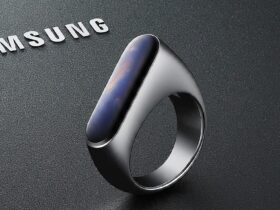Neuralink, Elon Musk’s company, successfully implanted its first brain chip in a human. The unidentified patient is recovering well and showing promising early results in detecting neural spikes.
What is Neuralink?
Founded by Elon Musk in 2016, Neuralink is a technology company developing implantable brain-computer interfaces (BCIs). These BCIs aim to allow people to control electronic devices with their minds and enhance their cognitive abilities.
How does the Neuralink chip work?
The Neuralink chip, called “The Link,” is about the size of a coin. A minimally invasive surgical procedure implants it in the skull. The chip contains thousands of tiny electrodes that detect and transmit neural signals. A computer then translates these signals into actions or usable information.
What is the goal of the first brain chip implant?
The first brain chip implant’s primary goal is to test the safety and efficacy of Neuralink’s technology. Doctors will monitor the first patient to see if the chip can accurately detect neural spikes and if there are any adverse side effects.
Benefits of The Link:
- Restoring motor function: The Link could help people with quadriplegia control computers and other electronic devices with their minds. This could allow them to type, control the mouse cursor, and even play video games.
- Improving communication: The Link could help people with certain neurological conditions, such as ALS, to communicate more easily.
- Enhancing cognitive abilities: In the future, The Link could potentially be used to enhance human cognitive abilities, such as memory and concentration.
What are the risks and challenges associated with the Neuralink chip?
While Neuralink’s technology is promising, there are several risks and challenges associated with its development and use. Some of these risks include:
- Surgical risks: The brain chip implantation procedure carries the risk of complications, such as infection or bleeding.
- Neural damage: The Neuralink chip could damage neural tissue in the brain.
- Data misuse: The neural data collected by the Neuralink chip could be misused for privacy or commercial purposes.
- Ethical concerns: The use of Neuralink’s technology raises ethical questions about privacy, control over one’s thoughts, and human enhancement.
Neuralink Technology Progress:
- 2016: Neuralink is founded by Elon Musk and his team.
- 2019: Neuralink releases a first demo of its brain implant in a pig.
- 2020: Neuralink releases a second demo of its brain implant in a monkey.
- 2023: Neuralink successfully implants its first brain chip in a human.
Reports and Statistics:
- Neuralink has not yet published official statistical data on the progress of its technology.
- Some media outlets have estimated that Neuralink has developed a brain implant that can:
- Record neural activity from 1,000 neurons simultaneously.
- Transmit data wirelessly at a speed of 10 Mbps.
- Stimulate neurons in the brain to produce movement or sensation.
The first human implant of a brain chip by Neuralink is a significant step forward in the development of BCIs. This technology has the potential to revolutionize the way we live and work, however it is important to consider the risks and challenges associated with its development and use.






